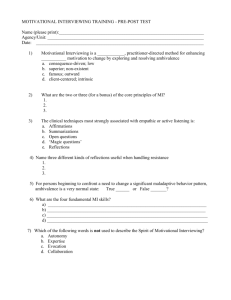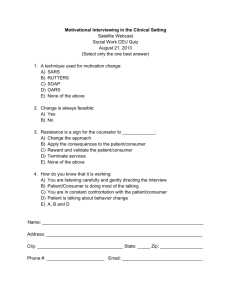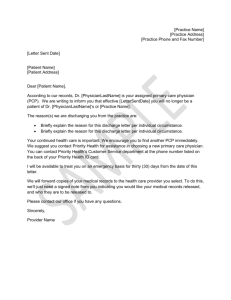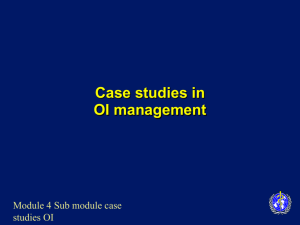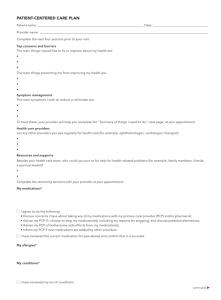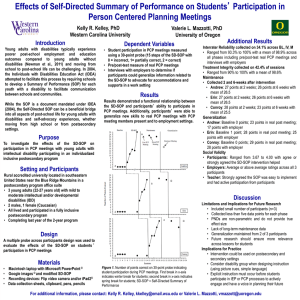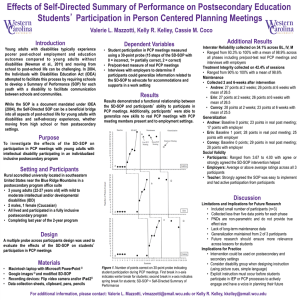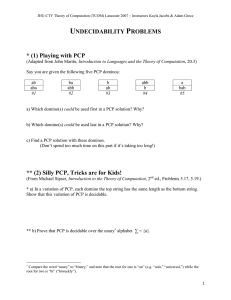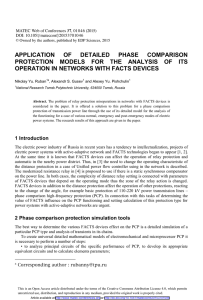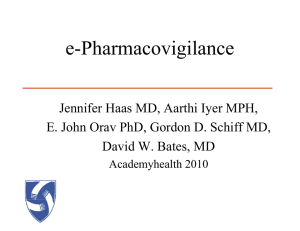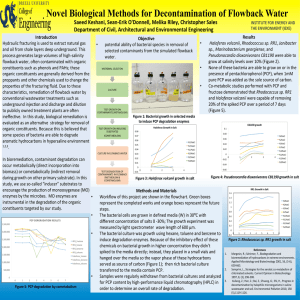Person Centered Planning (PCP) for Substance Abuse Clients
advertisement
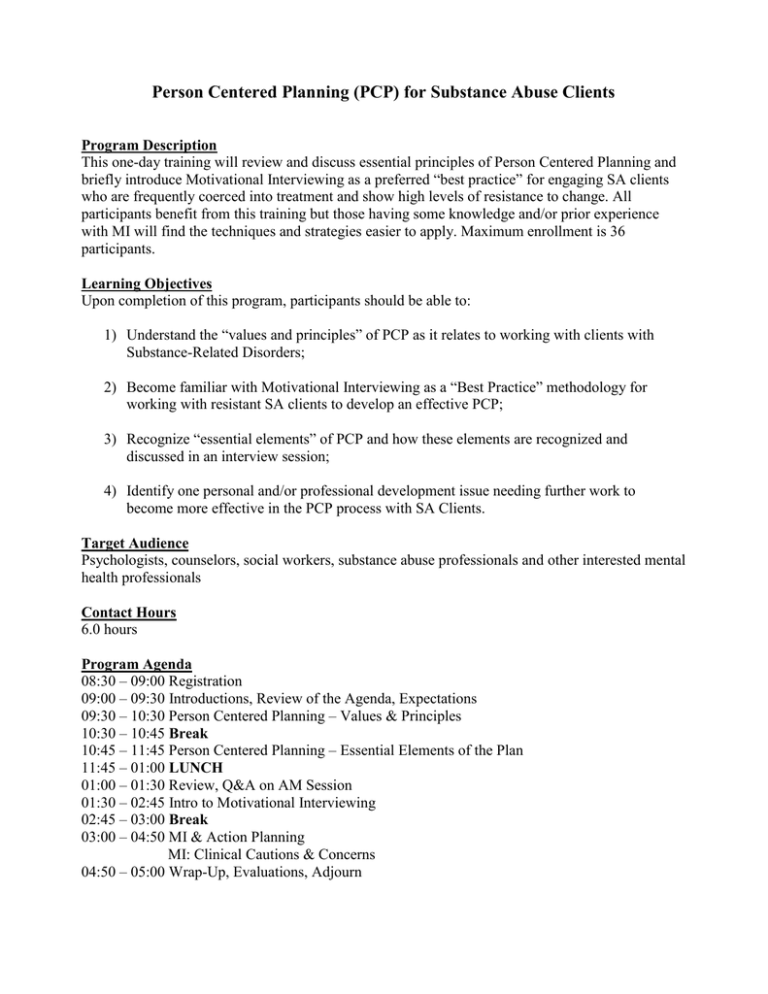
Person Centered Planning (PCP) for Substance Abuse Clients Program Description This one-day training will review and discuss essential principles of Person Centered Planning and briefly introduce Motivational Interviewing as a preferred “best practice” for engaging SA clients who are frequently coerced into treatment and show high levels of resistance to change. All participants benefit from this training but those having some knowledge and/or prior experience with MI will find the techniques and strategies easier to apply. Maximum enrollment is 36 participants. Learning Objectives Upon completion of this program, participants should be able to: 1) Understand the “values and principles” of PCP as it relates to working with clients with Substance-Related Disorders; 2) Become familiar with Motivational Interviewing as a “Best Practice” methodology for working with resistant SA clients to develop an effective PCP; 3) Recognize “essential elements” of PCP and how these elements are recognized and discussed in an interview session; 4) Identify one personal and/or professional development issue needing further work to become more effective in the PCP process with SA Clients. Target Audience Psychologists, counselors, social workers, substance abuse professionals and other interested mental health professionals Contact Hours 6.0 hours Program Agenda 08:30 – 09:00 Registration 09:00 – 09:30 Introductions, Review of the Agenda, Expectations 09:30 – 10:30 Person Centered Planning – Values & Principles 10:30 – 10:45 Break 10:45 – 11:45 Person Centered Planning – Essential Elements of the Plan 11:45 – 01:00 LUNCH 01:00 – 01:30 Review, Q&A on AM Session 01:30 – 02:45 Intro to Motivational Interviewing 02:45 – 03:00 Break 03:00 – 04:50 MI & Action Planning MI: Clinical Cautions & Concerns 04:50 – 05:00 Wrap-Up, Evaluations, Adjourn Faculty L. Worth Bolton, ACSW, LCAS, CCS, has worked as a Clinical Assistant Professor at the UNCCH School of Social Work since 1997 and coordinates the Certificate in Substance Abuse Studies Program. From 1974 through 1997 he worked with outpatient, inpatient, residential, and institutional programs for adults and adolescents with Substance-Related Disorders. Worth has served as past Chair and Member of the NC Foundation for Alcohol & Drug Studies and the NC Substance Abuse Professional Certification Board. In addition to his current teaching responsibilities, Worth is an experienced field trainer working with the DMHDDSAS to assist in the development of the NC Training of Trainers Network.
